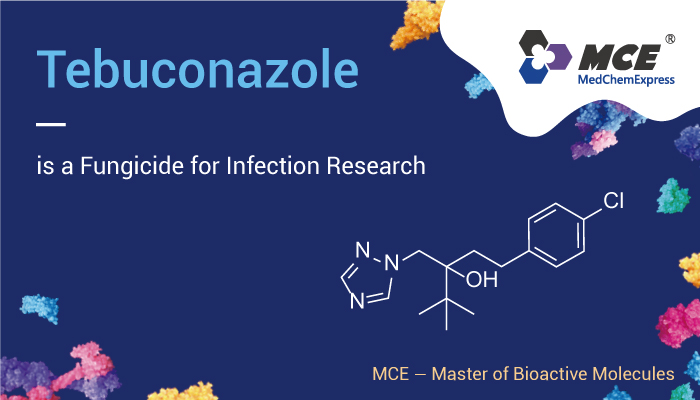Fungicides accounts for the majority of pesticide application which are extensively used to fight fungal parasites. Azole fungicides are a family of highly effective systemic fungicides that act by inhibiting ergosterol biosynthesis. Host-parasite relationships exist widely in the environment. The study of the pollutant-parasite interplay is especially important. Tebuconazole are commonly used as fungicides in agriculture. Here, we introduce a Fungicide, Which can be used for infection research.

Tebuconazole is a fungicide with anti-infection inhibitory
In vitro, Tebuconazole exposure from 153.6 μg/L upwards suppresses infection in Daphnia clones in the absence (”no-parasite”) and presence (”parasite”) of spores of the microparasitic yeast M. bicuspidate. In addition, tebuconazole completely suppressed infection, irrespective of the nominal concentration. Besides, tebuconazole at 6.25 μg/L reduced infection rates in clone 12 to 20% and 30%, and in clone 47 to 0% and 20%, for single challenge and double challenge treatments, respectively. Tebuconazole at 12.5 μg/L completely suppressed infection.
To sum up, tebuconazole suppresses infection and can be used for infection research.
Reference:
[1]Cuco AP, et al. PLoS One. 2017 Feb 23;12(2):e0172589.